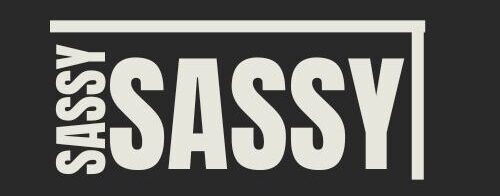Have you ever glanced at your credit card statement and spotted a puzzling entry labeled “CSC Service Work Charge”? You’re not alone. Many Americans find themselves scratching their heads over this mysterious charge, wondering if it’s legitimate or a sneaky attempt at fraud.
In this comprehensive guide, we’ll dive deep into the world of CSC service work charges, uncover their true nature, and equip you with the knowledge to protect your hard-earned money.
The Basics Of CSC Service Work Charge
What Is CSC Service Work Charge?
CSC service work charge is a term that often appears on credit card statements, leaving many cardholders confused. It typically refers to fees associated with customer service or maintenance work performed by a company. These charges can vary widely in amount and frequency, depending on the services rendered.
Common industries associated with CSC charges include tech support, subscription-based services, online marketplaces, and financial services. The prevalence of these charges across various sectors underscores the importance of understanding what they represent and how to identify legitimate ones.
How Does CSC Service Work Charge Appear On Credit Card Statements?
When you’re combing through your credit card statement, CSC service work charges might pop up in various formats. You might see it listed as “CSC Service Work,” “CSC Service Charge,” “CSC Work Fee,” or simply “Customer Service Charge.”
The key is to pay close attention to the merchant information and transaction date accompanying these charges. This context can often provide valuable clues about the charge’s origin and legitimacy.
Understanding CSC Service Work Charge:
Let’s break down the acronym “CSC”: Customer Service Charge. This charge often covers costs related to customer support, account maintenance, or specific services provided by a company. It’s crucial to distinguish CSC charges from other common credit card fees, such as annual fees or interest charges.
The nature of CSC charges can vary significantly depending on the business model of the company charging them. For some, it might represent the cost of providing ongoing customer support. For others, it could be a way to recoup expenses related to account management or specialized services.
Reasons For the CSC Service Work Charge:
Companies may use the CSC service work charge label for various reasons. Legitimate business operations often necessitate passing certain costs onto consumers.
For instance, businesses might use this designation to cover the expenses of maintaining a customer service department or outsourcing customer support to third-party providers.
In some cases, the charge might represent processing fees for specific services. Understanding these potential reasons can help you better evaluate whether a CSC charge on your statement aligns with services you’ve received or companies you’ve interacted with.
Is the CSC Service Work Charge legitimate?
Identifying Legitimate CSC Service Work Charges
To determine if a CSC charge is legitimate, start by verifying the merchant. Ensure the company name matches a service you’ve used recently. Next, try to match the charges to services you’ve received or account changes you’ve made.
Legitimate charges usually have consistent or explainable amounts, so be wary of any that seem unusually high or out of pattern with your typical usage.
Common Scams And Fraudulent Charges
Scammers often use familiar-sounding charge descriptions to slip past your radar. Fraudulent CSC charges might differ from legitimate ones in several key ways.
While legitimate charges typically come from recognizable merchant names and match recent service use, fraudulent ones often feature vague or unfamiliar merchant descriptions and don’t correspond to any service or interaction you can recall.
Case Study: The Lagosec Inc Charge Controversy
In recent years, many consumers have reported suspicious charges from “Lagosec Inc” on their credit cards. These charges often appear as CSC service work fees, leading to confusion and concern among cardholders.
The Lagosec Inc charges are frequently unrecognized by cardholders and have been the subject of numerous online complaints and fraud allegations.
If you spot a Lagosec Inc charge on your statement, treat it with caution and investigate further. This case highlights the importance of scrutinizing unfamiliar charges, even when they’re labeled with seemingly legitimate terms like CSC service work.
Dealing With Unauthorized CSC service Work Charges

Reporting Unauthorized Charges To Your Credit Card Company
If you suspect a CSC charge is fraudulent, it’s crucial to act quickly. Contact your credit card issuer immediately and provide details about the suspicious charge. Don’t hesitate to request a temporary hold on your card if you believe your information has been compromised.
Remember, under the Fair Credit Billing Act, you have 60 days to report unauthorized charges. This legal protection underscores the importance of regularly reviewing your credit card statements and promptly addressing any concerns.
Seeking Refunds For Unauthorized Charges
The dispute process typically involves filing a formal dispute with your credit card company, providing any relevant documentation, and awaiting the investigation results.
While this process can take 30-90 days, many cardholders successfully dispute fraudulent CSC charges. However, outcomes can vary, so it’s essential to be patient and persistent.
Read This Post: Lagosec Inc Charge on Credit Card – Is It Legit?
Protecting Your Credit Card From Unauthorized Charges
Best Practices For Securing Your Credit Card Information
Protecting your credit card information is crucial in preventing unauthorized charges. Use strong, unique passwords for online accounts and enable two-factor authentication when available.
Avoid sharing credit card details over unsecured networks, and consider using virtual credit cards for online purchases to add an extra layer of security.
Monitoring Your Credit Card Statements Regularly
Regular monitoring of your credit card activity is your first line of defense against fraud. Set up alerts and notifications for transactions over a certain amount, international purchases, and weekly balance updates. Aim to check your statement at least once a week to catch any suspicious activity early.
Seeking Legal Assistance For Unauthorized Charges
When To Consider Legal Action
While most unauthorized charge issues can be resolved through your credit card company, some situations may require legal intervention.
Consider legal action in cases of large-scale fraud affecting multiple accounts, repeated unauthorized charges from the same source, or disputes that remain unresolved after exhausting all other options.
Finding Legal Support In Dealing With CSC Service Work Charges
If you need legal support, consider consulting consumer protection attorneys specializing in credit card fraud. Free legal aid organizations in your area or your state’s attorney general’s office can also provide guidance.
Before proceeding with legal action, carefully weigh the potential recovery amount against the legal fees you might incur.
Conclusion
CSC service work charges on your credit card can be legitimate fees for services rendered or potential red flags for fraud. By staying vigilant, understanding these charges, and knowing how to respond to suspicious activity, you can protect yourself from unauthorized charges and financial headaches.
Remember to regularly review your credit card statements, question any unfamiliar charges (including those labeled as CSC service work), act quickly if you suspect fraud, and stay informed about common scams and protection measures. By following these guidelines, you’ll be better equipped to navigate the sometimes murky waters of credit card charges and keep your financial health in check.
Have you encountered a CSC service work charge or a Lagosec Inc charge on your credit card? Your experiences and insights can help others stay informed and protected.

As an administrator, you have exclusive access to the core functionalities of our website. Here, you can manage users, content, and settings to ensure a seamless and engaging experience for all visitors. Whether you’re updating information, monitoring site activity, or customizing features, this dashboard empowers you to maintain the highest standards of quality and performance. Your decisions shape the future of our online presence—let’s make it exceptional together!
